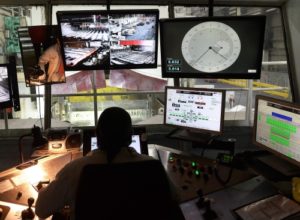Industry 4.0 relates with the fourth industrial revolution. After, industry 1.0 which refers to mechanization, 2.0 to mass production, and 3.0 to automation, now enter “Internet of Things and Services” is becoming an integral part of manufacturing. Industry 4.0 has the capability to create multiple growth opportunities and competitive advantages for the business locations. According to experts, the companies will experience an increase in productivity by 30 percent using Industry 4.0.
Social Machines
In industry 4.0, intelligent machines will allow sharing of information just like online social networks. The arrival of industry 4.0 has made production more flexible and efficient. Moreover, these social machines communicate directly with all the IT systems enabling uninterrupted flow of information within the company.
 Global Facilities
Global Facilities
Talking about the production arena, it is a place where machines share data with each other and connect to supplier & customer systems. Therefore, if the supplier cannot deliver the product, the technology works to analyze the capacity utilization and automatically places an order with them.
However, the human effort still plays a critical role in the production process. The augmented operators can control and monitor within the production network. IT-based assistance systems can extend functions of a real factory.
Smart Products
Every smart product holds information about product status and operating conditions. The data is stored within Radio Frequency IDentification (RFID) chips, which provides a virtual copy of each smart product. RFID enables collecting and updating of product information throughout the life of the product as per the requirement, making them smart. These smart products are aware of its type and can tell machines of what shape it needs and or the right color for it.
Virtual Production
Corresponding to the real production arena, the smart factories will have the digital twin for same products and resources. The system makes way for engineers to control and monitor production in real time remotely. Therefore, the digital copy allows virtual simulation throughout the production processes.
The benefits of Industry 4.0 model will outweigh concerns related to production. Health and safety of human workers can be improved, and supply chain can be controlled during manufacturing and delivery process. The results for Industry 4.0 model could be increased profit, market revenue, and market share.
